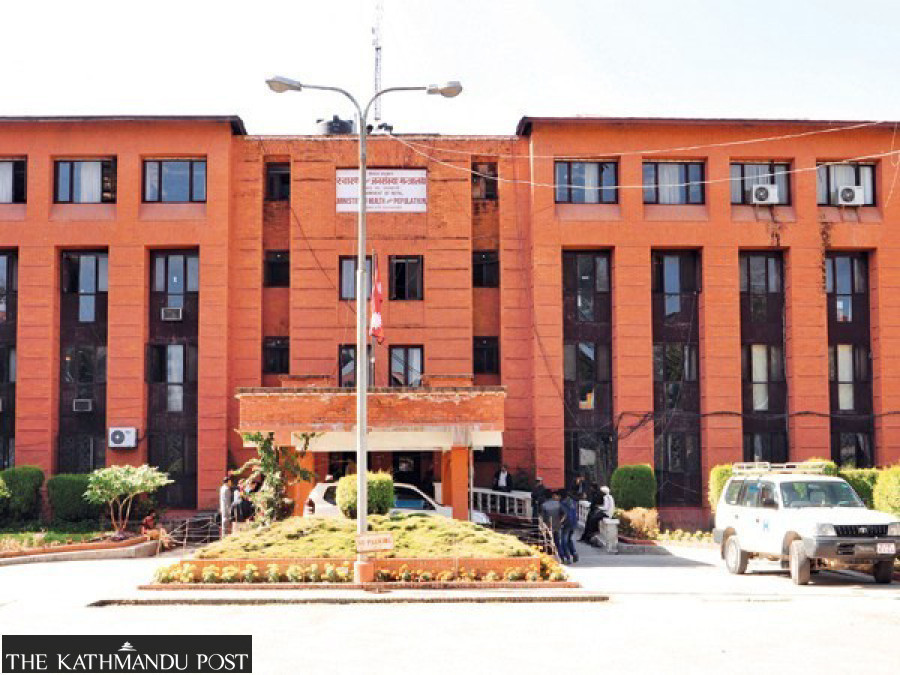Health
No budget for JE vaccine, health ministry spends millions on unproven ayurvedic tonic
JE virus has already killed 15 people this year, and most of the deceased are unvaccinated.
Post Report
At least 15 people, mostly unvaccinated, have died of infection with the Japanese encephalitis (JE) virus in the past one month. The virus is the number one killer disease spread by a vector, the Culex mosquito.
Vaccination is a proven and effective method to contain the spread of the deadly disease and resulting deaths. But Nepal’s health Authorities say they do not have funds for vaccination against the unvaxxed population.
However, they have been administering an unproven ayurvedic tonic, ‘swarnaprashana’, to children under five years of age, spending millions of rupees, out of 25 centres of all seven provinces.
A few days ago, Minister for Health and Population Pradip Paudel inaugurated the campaign to administer the tonic in Dhangadhi.
“We spend around Rs7.5 million to purchase raw materials of the swarnaprashan,” said Dr Shyam Babu Yadav, officiating director general at the Department of Ayurveda and Alternative Medicine. “Experts at the concerned health agency [Ayurveda and Alternative Medicine centre] will mix the raw materials and administer them to children once a month.”
The so-called swarnaprashana is an ancient Ayurvedic immunity-boosting formulation containing gold ash [swarna bhasma], honey, ghee, and herbal extracts. Raw materials have been purchased from two different Indian companies—gold ash from one and ghee and honey from the other. Ayurveda experts make a tonic from the mixture in the country before administering it to the children, meaning that the medicine is not registered at the Department of Drug Administration[DDA], the national regulatory body.
“It is neither a branded drug nor has it been registered at the DDA,” said an official at the Ministry of Health and Population, asking not to be named, as he feared retribution for speaking out to the media. “No scientific study on the efficacy has been carried out yet to prove that the tonic works as it is claimed.”
Officials at the DDA said they do not seek an efficacy and side effects certificate while registering ayurvedic drugs.
“We just check classical literature while registering ayurvedic drugs,” said Narayan Dhakal, director general at the department. “It is the responsibility of the Department of Ayurveda and Alternative Medicine to ensure safety and efficacy.”
When asked about an unproven tonic, Yadav, the director general of the Department of Ayurveda and Alternative Medicine, said that the tonic is a proven immunity booster that has been used for centuries.
“We have been using turmeric in our kitchen for hundreds of years, and we have not questioned its efficacy and have been eating various vegetables without questioning their efficacy,” said Yadav.
“In a rural setting, honey and ghee are given to newborn babies. The tonic we are administering to the children boosts immunity, which helps fight multiple diseases and cognitive health.”
Meanwhile, the Nepal Paediatric Society has urged the government to suspend the ongoing campaign until scientific evidence, child safety assurance, and regulatory transparency are established.
“Available scientific evidence, child safety, quality, risk assessment, and regulatory clarity remain insufficient,” reads the statement issued by the organisation of paediatric doctors.
“There is no scientific basis to claim that Swarnakalp enhances the 'immune system' in infants. Additionally, concerns include risks associated with heavy metals [gold], the absence of Drug Administration Department registration/batch-testing made public, and the lack of regulatory transparency.”
The organisation also asked the drug regulator to provide its official stance and ensure regulatory transparency before using such products.
“The government should prioritise and expand investment in proven interventions such as exclusive breastfeeding, timely immunisation, Vitamin A supplementation, zinc for diarrhoea, nutrition, and WASH [Water, Sanitation and Hygiene],” reads the statement.
The organisation has also asked parents not to give honey to infants below 12 months of age.




 13.12°C Kathmandu
13.12°C Kathmandu














